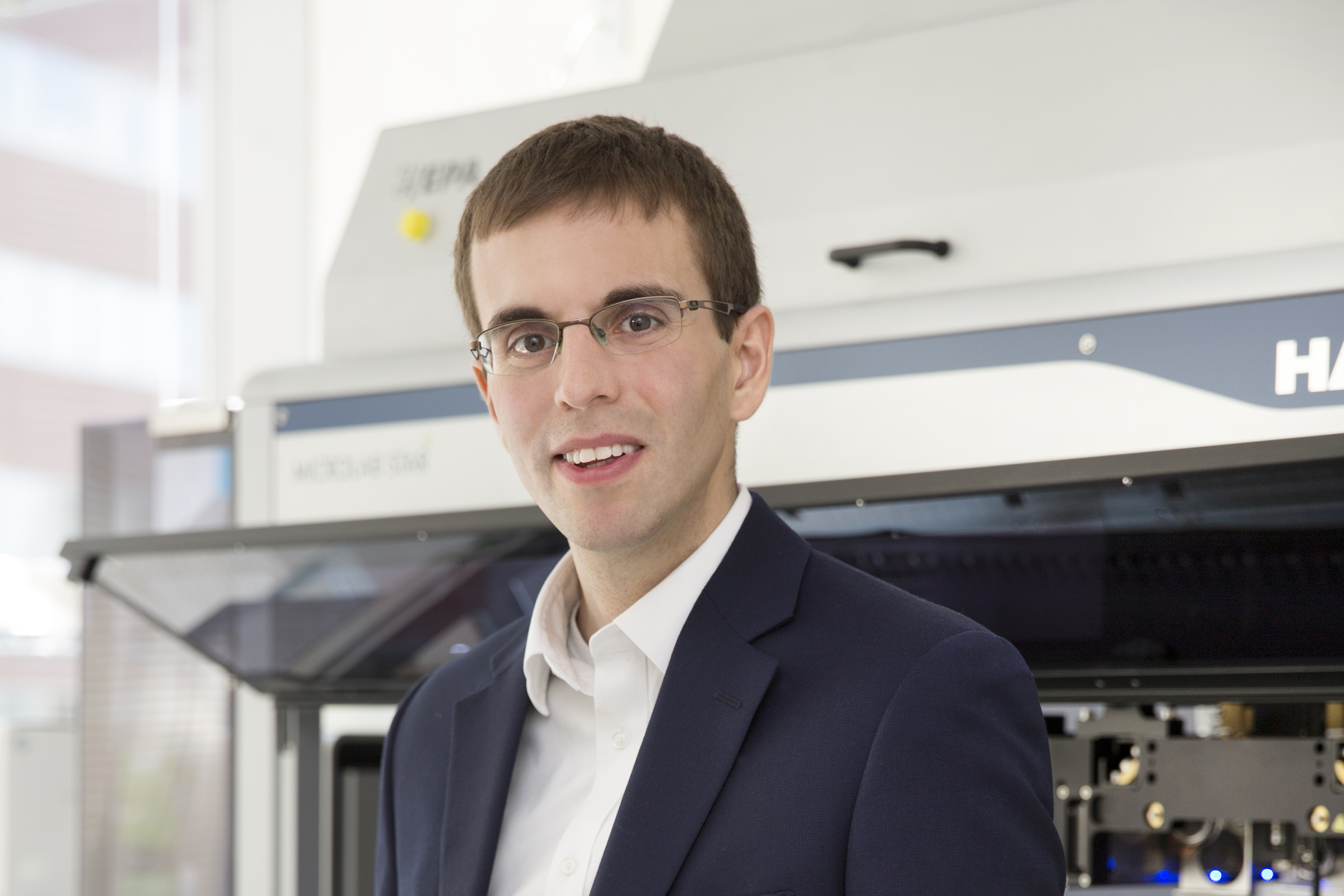Developing Liquid Biopsies to Detect Cancer
-
-
Slice of MIT
Filed Under
Recommended

Cancer patients who undergo surgery are often left with a frightening question: Did the surgeons get all the cancerous cells?
No one wants a recurrence of disease, but additional treatments such as radiation or chemotherapy have significant side effects. That’s why Viktor Adalsteinsson PhD ’15 has been developing tools to support better-informed treatment decisions: so-called “liquid biopsies” that can detect the presence of cancer from a simple blood test.
“We know treating soon after surgery can reduce the chances cancer will return, but we don’t know who stands to benefit from further treatment,” says Adalsteinsson, director of the Gerstner Center for Cancer Diagnostics at the Broad Institute of MIT and Harvard. “One major opportunity for liquid biopsy is detecting after surgery who has minimal residual disease that cannot be seen on an imaging scan but could lead to recurrence if left untreated.”
We’re incredibly excited about getting the technology out in the world to benefit patients.
Adalsteinsson knows from personal experience what is at stake. “My mother was diagnosed with breast cancer when I was in second grade and passed away when I was at MIT,” he says. “I’ve always known that I wanted to pursue cancer research and develop technologies that will improve cancer care.”
Engineering Impact
Adalsteinsson says he chose to major in chemical engineering as an undergraduate at Pennsylvania State University because he wanted to build and scale practical solutions. That passion for real-world results also led Adalsteinsson to the Institute. “MIT’s focus on impact—developing solutions for major unmet needs in the world—has always inspired me,” he says.
Adalsteinsson earned his PhD in the lab of Professor J. Christopher Love, a member of the Koch Institute for Integrative Cancer Research at MIT, and then joined the Broad Institute in 2015. He remains affiliated with Koch and credits collaboration among area researchers with enabling the significant progress his team has made on liquid biopsies over the past years.
“The Koch Institute and Broad Institute are really unique places to do convergent multidisciplinary research,” he says. “That’s what brought me to Koch in the first place—that vision to take a convergent approach to cancer research and break down the barriers between individual labs and work together toward important challenges in medicine. I’ve carried that forward in my work at the Gerstner Center.”
From Lab to Clinic
Honored by MIT Technology Review in 2017 as one of its visionary “35 Innovators Under 35,” Adalsteinsson has had a leading role in two recent breakthroughs for liquid biopsies.
In 2022, Adalsteinsson and his colleagues at Broad, Dana-Farber Cancer Institute, and Harvard Medical School developed a method for efficiently searching blood samples for thousands of rare DNA mutations at once. The technique significantly improves the sensitivity of liquid biopsies and has already been licensed for use as a clinical diagnostic. “We’re incredibly excited about getting the technology out in the world to benefit patients,” Adalsteinsson says.
Adalsteinsson has also teamed up with Love and Professor Sangeeta Bhatia of the Koch to develop a way to temporarily slow the clearance of cancer DNA from the bloodstream—greatly improving the chances of detecting cancer in a blood sample. This research was published in Science in January.
He and his fellow researchers have since launched a company, Amplifyer Bio, to bring this new technology to market and are hoping to launch human studies within two years—thus joining the long list of MIT-affiliated success stories.
“There are a remarkable number of technologies out of MIT and Broad and our affiliated institutions that have made it out there in the world in meaningful ways,” Adalsteinsson says. “That’s what we strive to do—not just publish interesting papers but move the needle in the field with clinical translation—applied solutions that can make an impact for patients.”
Photo: Juliana Sohn







